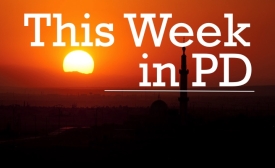international aid
The UAE ranked as the world’s largest donor of foreign aid in 2014, proportionately to its national income according to the Organization for Economic Cooperation and Development (OECD).
At the end of last year, China introduced a draft law that forbids foreign NGOs that engage in activities contrary to "Chinese society's moral customs." In Russia, organizations that receive foreign funding must register as "foreign agents." Egypt, Bolivia, Eritrea, and Zimbabwe have passed similar measures. These governments see malign motives behind many of these foreign-financed initiatives. Are they right to be worried?
Aid spending by the world’s richest states hovered around an all-time high last year, but development assistance to the least-developed countries (LDCs) fell by 16% from the year before, the Organisation for Economic Cooperation and Development (OECD) has said.
An Australian government initiative branded as the InnovationXchange will broker partnerships between business, civil society, philanthropy, and academia in order to tackle problems in developing countries in the Australian region. The InnovationXchange is said to draw on the model for developing innovation in Silicon Valley technology startups. It will be licensed to embrace more financial risk than a normal government bureaucracy in trying new solutions.
As Syria’s war enters its fifth year, its refugees are fading deeper into the background. At a conference in Kuwait last week, countries promised more aid, but donor fatigue has left humanitarian organizations unable to help people like Deen, and that’s creating an opportunity for the Islamist militants who play a growing role in the conflict. This month, Islamic State and and al-Nusra Front militants took over much of the Yarmouk Palestinian refugee camp in Damascus.
With the Asian Infrastructure Investment Bank (AIIB) coming into operation with the support of UK, France, Germany and such Western states and the BRICS Bank set to start off, China seems to have taken over the International Aid Regime.

This week PD News focuses on different approaches taken to help address both the political and humanitarian needs to resolve the crisis.
Sierra Leone poured a lot of money into the battle against Ebola. The government earmarked $18 million of treasury funds and public donations to combat the disease, which has claimed around 3,800 lives there. That's an admirable commitment. But there's just one problem. A third of that money appears to have disappeared.







